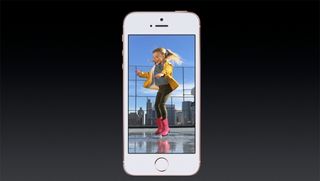Apple's 'USB Restricted Mode' closes security loophole on locked iPhones, thwarting police data extraction
The new software feature will by default protect against iPhone-hacking tool GrayKey

Apple will change the default settings of its iPhone to stop hackers from accessing information through the phones' Lightning port and as a result, will cut off a loophole used by the police to access protected iPhone data.
The Cupertino company says the changes are part of its regular security updates and its only aim is to provide better security for iPhone users, denying the changes were designed to stop US law enforcement from gaining access.
"We're constantly strengthening the security protections in every Apple product to help customers defend against hackers, identify thieves and intrusions into their personal data," Apple said in a statement.
"We have the greatest respect for law enforcement, and we don't design our security improvements to frustrate their efforts to do their jobs."
The new default settings will have a feature Apple call a "USB restricted mode" which has been present in developer betas for both iOS 12 and iOS 11.4.1. With this feature, all communication through a Lightning port to USB connection will be blocked on unlocked and dormant devices.
US law enforcement uses a tool called a GrayKey, which is a small box with two Lightning cables that can unlock password encryptions on iPhones and extract data from Cupertino's phones.
The box downloads the contents of the device to an interface. However, the new feature will render these hacking tools useless.
Get the ITPro. daily newsletter
Receive our latest news, industry updates, featured resources and more. Sign up today to receive our FREE report on AI cyber crime & security - newly updated for 2024.
The loophole applies to countries outside the US, including the UK, but its likely to impact the FBI who have an ongoing privacy battle with Apple which refused to help the police crack into an iPhone used by a gunman in the San Bernardino shootings in December 2015 which saw 14 people fatally shot.
A similar situation arose in Devin Kelley shot 26 people and wounded 20 others in the Sutherland Springs, Texas shootings of November 2017. In this case, the police decided not to contact Apple for help initially and sent the shooter's iPhone SE to its own labs.
Apple said it immediately contacted the FBI after learning about the incident but it was instead they were met with a search warrant for the data held it held as well as for any files stored on another phone found near Kelley's body.
"We offered assistance and said we would expedite our response to any legal process they send us," Apple said at the time, noting that the efforts of the FBI made it more difficult to access the data on the iPhone.
Picture: Shutterstock - Malwarebytes Labs
Bobby Hellard is ITPro's Reviews Editor and has worked on CloudPro and ChannelPro since 2018. In his time at ITPro, Bobby has covered stories for all the major technology companies, such as Apple, Microsoft, Amazon and Facebook, and regularly attends industry-leading events such as AWS Re:Invent and Google Cloud Next.
Bobby mainly covers hardware reviews, but you will also recognize him as the face of many of our video reviews of laptops and smartphones.





